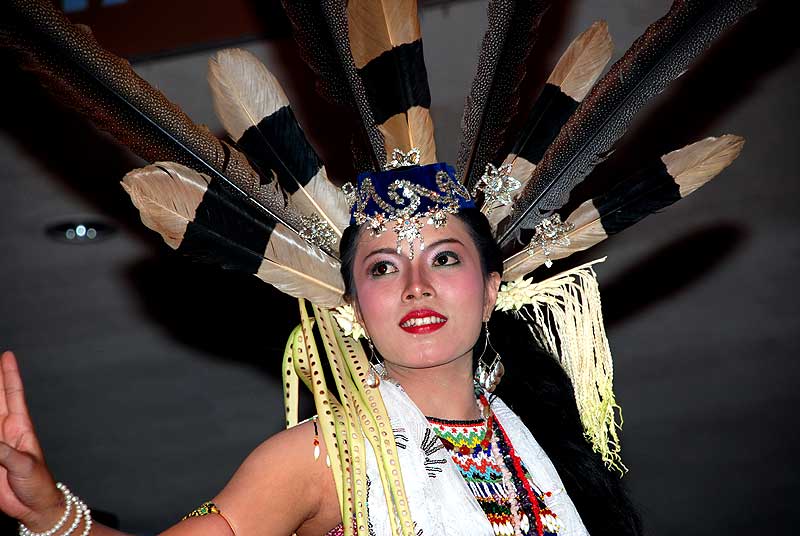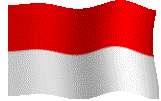Kalimantan
 Formerly known as Borneo, Kalimantan is the world's second largest island. The North and north-western part of the island are the East Malaysian state of Serawak and Sabah, with the newly independent state of Brunei Darusalam between them. The rest of the island is part of Indonesia, divided into four provinces - East Kalimantan, West Kalimantan, Central Kalimantan and South Kalimantan. Kalimantan is one of the most bio-diverse places on the earth. It has one of the world's largest tropical rainforests and is home to rare flora and fauna.
Formerly known as Borneo, Kalimantan is the world's second largest island. The North and north-western part of the island are the East Malaysian state of Serawak and Sabah, with the newly independent state of Brunei Darusalam between them. The rest of the island is part of Indonesia, divided into four provinces - East Kalimantan, West Kalimantan, Central Kalimantan and South Kalimantan. Kalimantan is one of the most bio-diverse places on the earth. It has one of the world's largest tropical rainforests and is home to rare flora and fauna.
History of Kalimantan:
According to the Sanskrit inscriptions dating back to 400 A.D., Kalimantan came under the early influence of Indian settlers. But by 15th century, Islamic had great impact on Kalimantan and was rapidly embraced by the different kingdoms in the island. In the early 1600s, the Dutch began to establish trading agreements in Kalimantan and gained monopoly of the spice trade in Banjarmasin and diamond trade in Sambas. They also made contract with Pontianak in 1778. Gradually, they took control of all of what is now Kalimantan. Kalimantan was occupied by the Japanese forces during the 2nd World War. After the war, the Dutch failed to regain control of the area. Later on Indonesia achieved its independence and Kalimantan became a province and was later divided into four provinces.
Climate of Kalimantan:
Kalimantan has tropical climate and very high rainfall throughout the year. Average rainfall is around 3000 mm per annum. The temperature varies between 29º C and 34º C and the humidity is in the range of 95-98%.
Tourist Attractions in Kalimantan:
Pontianak: It is the capital of West Kalimantan. Some of the favourite tourist spots include Equator Monument, Caldaria palace in Kampong Dalai, the State Museum, the Kapoks and the Landau Bridges and floating market.
Derawan Island: It is a favourite place for marine tourism. There are many rare animals such as the green turtle, the scarlet turtle, star fruit turtle and sea cow. The place is also home to many rare species of marine plants and coral reef. It is also a good place for scuba diving, pearl diving, fishing, swimming and other water sports.
Bontang: Located in the regency of Kutai with 200.000 ha, Bontang has rare flora and fauna. The Kutai National Park near Bontang is worth visiting to see sceneries, especially those at Bears Bash.
Gunning Palung National Park and Nature Reserve: The Gunung (Mount) Palung national park located in the Ketapang regency is home to rare flora and fauna. The Raya Pasi mountain located in the Singkawang regency is also interesting to visit to see the Rafflesia or the Giant Flower. Singkawang is also a nature reserve. The forest of Sanggau is worth a visit where hot springs, lakes and caves can be found.
Palangkaraya: Palangkaraya is the provincial capital of Central Kalimantan and situated in the upstream region of the Kahayan river. Nowadays, the town has become the center of government, trade and education of the province. The Regional Museum of Palangkaraya contains a collection of historical and cultural interest from all over Central Kalimantan. The Nature Reserve of Tangkiling lies 34 km north of Palangkaraya.
Sampit: Sampit town, on the Sampit River and the capital of Sampit regency, is known as the biggest timber port in Kalimantan as well as in Indonesia. One can find many interesting tourism attractions in Sampit. Pandaran Beach is a park on the seaside at the mouth of the Sampit River. It is quite unique. On the north one can see the river emptying into the sea, while to the south is the wide expanse of the Java Sea. The Orchid Park of Pembuangan Hulu is a natural forest in which a number of rare and beautiful orchid varieties grow. Hunters can engage in their favourite pastime at the Serayan River, which borders on the hunting park of Kotawaringin Barat.


